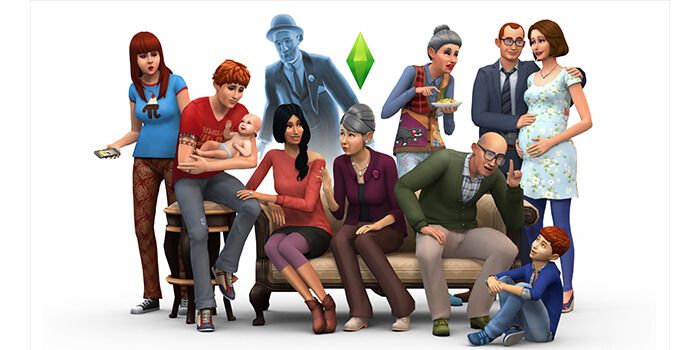In a move that surprised many gamers, publisher Electronic Arts today closed down Sims developer Maxis Emeryville. In a statement provided to Polygon, EA was quick to share that The Sims franchise would continue forward, but that they were consolidating their office in Emeryville, California - the office that served as Maxis headquarters for over two decades - and moving the office’s responsibilities to other locations.
It’s hard not to feel a little heart broken by the news. Many gamers, like myself, consider the original SimCity one of the most iconic and enjoyable games in the last few decades. There was just something special about building an entire city, having to perfectly balance building infrastructure, utility services and community buildings. Then, of course, watching as a rogue tornado or alien robot spider wreaked havoc on that hard work.
-
Building Maxis
In 1987, Will Wright and Jeff Braun started Maxis Software in order to publish their game, SimCity, for home computers. The duo had originally released the game for Commodore 64, but felt they would have better success if the game was available on PC. Unfortunately, they were unable to find a suitable publisher to handle the port.
The game became a huge hit at release, due in large part to the game’s uncommon premise that players could build something completely unique, without any set rules for winning and losing. Players could replay the game a hundred times and never have the same experience twice. This success spawned a franchise that would be beloved for decades to come and would lead to many spinoff games, including SimLife, SimFarm and SimCoptor. While these games were enjoyed by many, few were able to find the same notoriety as the original SimCity.
-
Acquisition by Electronic Arts
After finding success, the team at Maxis decided to acquire Cinematronics and created the games Crucible and Full Tilt! Pinball. Unfortunately, neither of those games, nor many of the games Maxis developed independently, provided the kind of profit the founders were no doubt hoping for.
A year after Maxis released Full Tilt! Pinball, the company was acquired by Electronic Arts and became EA Maxis. After the acquisition, EA allowed Maxis to finish their work on SimCity 3000, then pushed the team toward The Sims, a new angle on the Sims franchise.
-
Two Decades of SimCity
When we think about the description of the original SimCity, it’s a wonder the game found success. Players would take on the role of a city planner, building streets, highways and municipal buildings, as well as zoning areas for commercial, industrial and residential buildings. Despite the very ordinary premise, the game found huge commercial success. Players reveled in the opportunity to build a city from the ground up, while simultaneously working to keep Sim characters happy and keep the city safe from threats.
After the success of the first game, Maxis created SimCity 2000 and SimCity 3000, as well as other Sim spinoffs. The Sim games revolutionized the simulation genre and made simple, redundant tasks fun.
In 2003, Maxis released SimCity 4, which featured updated 3D graphics. In addition to other added features, SimCity 4 allowed players to insert their characters from The Sims into the cities they built. Unfortunately, due to the company’s focus on The Sims and Spore, Maxis didn’t release another SimCity game for 10 years.
After a decade of no new SimCity games, Maxis fulfilled many gamers’ dreams by announcing a SimCity game in 2013. Sadly, the new game experienced numerous issues at launch, leaving a dark cloud hanging over the game for many months. After a disappointing release, the game was unable to recover and make the kind of significant sales many gamers, and likely Maxis, expected.
-
The Sims Empire
During the hiatus of SimCity games, Maxis developed The Sims under the direction of EA. After the success of the original Sims game in 2000, Maxis released The Sims 2 in 2004. Like SimCity, The Sims games didn’t provide a definite goal for winning the game. Instead, players were encouraged to make the most of their Sims' short lives. The success of The Sims 2 led to eight expansions that allowed players to engage in various life experiences, including attending university, dating, opening a business and taking care of pets.
Maxis released The Sims 3 in 2009 to positive reviews and over 10 million copies sold. The game was one of the most successful PC games of all time, which led to 11 expansions and nine stuff packs.
Last year, Maxis and EA released The Sims 4. This latest edition of The Sims franchise launched to significantly less success than its predecessor. However, the game has sold over a million copies since its release six months ago.
-
Branching Out
Even though Maxis was most well known for the SimCity and The Sims franchises, the company released over a dozen other games that it either developed or published for subsidiary developers. Among these games was the fantasy god game, Spore.
Spore was the brainchild of Maxis founder Will Wright, who focused on the 2008 strategy game instead of The Sims games. However, even though the game was separate from The Sims, its premise followed the same basic idea: players would help a character grow and interact with its surroundings, except in this case instead of a person it was a simple organism that grew into an adult animal and interacted with alien life from around the galaxy.
The game was mostly well receivedl by critics and gamers and garnered over one million sales in its first month, knocking The Sims 2 sales out of the water. The game’s success led to the release of Darkspore, but the follow-up to the successful god simulator received mediocre reviews from critics and failed to make strong sales.
-
Closing The Doors
But, despite that history of excellence and after almost 30 years in business, Maxis Emeryville is closing its doors. Sure, the Maxis name will live on, but by and large the core Sims and SimCity teams have been shuttered, which is a shame. The company’s legacy will live on and continue to please gamers around the world, but the loss is still heavy. I believe we speak for many gamers when we say, “Thank you, Maxis, for the wonderful memories and amazing games.”
What are your fondest memories with Maxis games? Share your experiences and thoughts in the comment section below.





